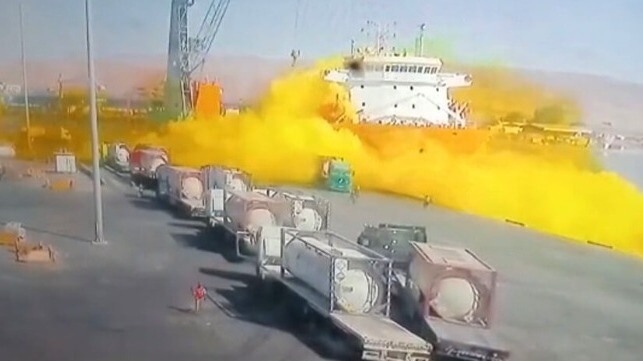Jordan Dismisses Port Officials Over Deadly Chorine Gas Accident

A preliminary investigation into the deadly chlorine gas release at the port of Aqaba has found that it was caused by "lack of conformity" of the crane's load rating with the weight of the cargo. The wire rope was rated at 8.5 tonnes, Faraya said, and it managed to hoist four 25-tonne containers of chlorine from the pier to the ship in a row without incident. On the fifth container, the wire rope parted and the tank dropped onto the deck of the ship. The resulting release of gas killed 13 people.
Jordanian Interior Minister Mazen Faraya told media at a press conference Sunday that the investigation's findings have been handed over to the nation's prosecutor general for further legal proceedings. Further, the minister asserted that the executives of the Aqaba Company for Ports Operation and Management (ACPOM) "do not have leadership skills." Multiple officials, including ACPOM's director, have been dismissed.
The investigation reportedly found fault with the decisions of the port operator's director general, director of operations, head of cargo operations, the shift manager at the time of the incident, and the master of the vessel in question, pointing to "negligence and lack of precautionary measures."
When inhaled, chlorine turns to hydrochloric acid, causing severe internal burns. Several hundred people were injured as a result of the release, and at least 38 required treatment in intensive care.
The ITF Seafarers’ Trust has made a $55,000 emergency grant to help local unions assist the families of dockers who have died or are in a serious condition as a result of the accident. Nine of the fatalities were members of the General Union of Port Workers of Jordan.
"This accident should never have happened in the first place,” said Paddy Crumlin, ITF President and Chair of the ITF Dockers’ Section. “It throws into sharp relief the safety regime at this port and raises tough questions about how dangerous loads are typically handled in the region.”
